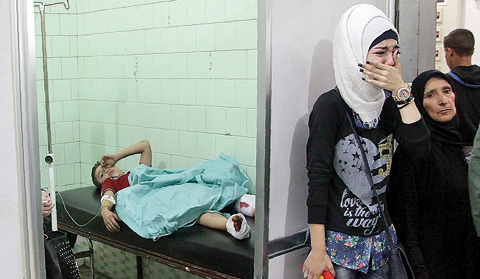BRIDGETOWN: Jos Buttler said England must "dust ourselves down” after a damaging 36-run defeat by ruthless Australia in Barbados on Saturday left their T20 World Cup defence in the balance.
Australia raced out of the blocks at the Kensington Oval, posting 201-7 in their 20 overs, and England wickets tumbled after a bright start as they struggled to 165-6. Buttler’s men, who flopped badly when defending their 50-over title in India last year, are still winless after their opening game against Scotland was wrecked by rain.
But Australia top Group B after two wins as they stay on track to become the first nation to hold all three global cricket titles simultaneously - Test, one-day and T20. Opener David Warner top-scored for the winners with 39 while spinner Adam Zampa was player of the match after taking 2-28, including the crucial wicket of Buttler for 42.
"They came out with a lot of intent and played really well and put us under a lot of pressure straight away,” said the England captain. "It was tough to drag it back from there. They bowled really well in that middle phase, took wickets at regular times and defended really well.”
Buttler said England needed to play with a lot of confidence in their remaining games against Oman and Namibia. "It’s all laid out what we need to do so we need to dust ourselves down and go again,” he added. Buttler won the toss in Bridgetown but watched in horror as Australia’s openers Warner and Travis Head savaged his bowlers.
Spinner Will Jacks was smashed for 22 runs in his first over and paceman Mark Wood also conceded 22 runs in his opening over as Australia raced to 55-0 off four overs, relishing a short boundary on one side of the ground. Moeen Ali made the breakthrough England desperately needed, bowling Warner for 39, and paceman Jofra Archer flattened the stumps of Head (34), leaving Australia 74-2.
But captain Mitchell Marsh (35) and Glenn Maxwell (28) kept the score ticking over and Marcus Stoinis’ 30 off 17 balls ensured Australia became the first side to reach the 200-mark during the tournament.
Zampa breakthrough
Buttler and Phil Salt ensured England got off to a swift start in their reply, reaching 73-0 at the end of the seventh over. But Zampa bowled Salt for 37 with his first ball and took the prized wicket of Buttler in his next over for 42.
Jacks was caught by Mitchell Starc in the deep off the bowling of Stoinis as Australia turned the screw, conceding just 11 runs in three overs. Moeen took three sixes off a Maxwell over as England briefly flickered but Jonny Bairstow went cheaply and Moeen perished for 25.
The innings petered out and the impressive Zampa finished with eye-catching bowling figures, with Pat Cummins taking 2-23. Marsh said his team’s all-round game was "outstanding”, pinpointing the early fireworks from Warner and Head as key.
"That was the difference in the game, the way we started, all based around our trust in each other,” he said. "The boys set the tone beautifully.” The top two teams in the group will advance to the Super 8 stage of the competition. — AFP



